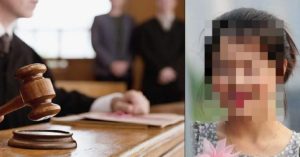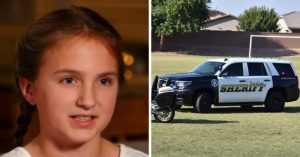Fransisco Carillo, known among his friends as Franky, was a mere 16-year-old when his life upended. Carillo grew up with his father, brother, and sisters in Lynwood, California in the 1990s. The children in the family grew up without a mother figure, with Carillo’s father divorcing her early on in their marriage. Gang rivalry was prevalent in the area then, with Hispanic gang ‘Young Crowd’ and the African American rival gang ‘Neighborhood Cripps’ running the turf. The Carillo family was known in town because of Franky’s brother, who was considered the leader of the Young Crowd.
However, on January 18, 1991, the dynamics changed. Donald Sarpy, 41, was shot that night in a drive by shooting in a black neighborhood while he was approaching a group of teenagers, which included his 15-year-old son, outside his house. Two shooters in a car drove by the house and one of them fired two shots, which struck Sarpy. Lynwood Sheriff’s Department got to work lining up pictures of the Young Crowd group members or anyone linked to it.
Lt. Craig Ditsch picked 15-year-old Scott Turner out of the group of six eyewitnesses outside Sarpy’s house and began questioning him on whether he saw the shooter in the car. After going through dozens of pictures, a confused Turner saw a familiar face in the lineup — Franky Carillo — and pointed at his picture. After a day, the other five witnesses also identified Carillo in the lineup. The case was made, and after a quick trial, Franky was sentenced to prison.
The Sheriff’s department at the time also had a gang of its own called the Vikings, which was notorious as a neo-nazi, white supremacist group. The department, however, denied its links to white supremacism. Ditsch was a member of the gang and knew Scott Turner well. Turner previously had also helped Ditsch in another witness testimony, and the officer called him a “perfect eyewitness.”
Franky, meanwhile, spent years in juvenile centers based on random witness testimony and headed to adult prison. To his surprise, after a few years, he found Turner there. After Carillo approached him, Turner unraveled, and told him he knew Carillo had not killed Sarpy, and that he was coerced into the testimony by Officer Ditsch. Turner decided it was time to correct the wrong and agreed to change his official testimony. He told the judges during the second trial that Ditsch had manipulated him and led him on to point to Carillo’s picture. Turner, a teenager at the time, was afraid of what might happen to him or his family if he did not comply.
The officer, who called himself a “gang expert”, instead pressed that Turner had only changed his testimony because he was threatened in prison by Carillo, who by the time had made friends there. The jury, unconvinced, did not pay heed to Turner’s change in testimony, and Carillo’s prison sentence continued. It was also revealed that a man by the name of Oscar Fernandez had written a letter to the court, confessing that he was the one who fired the shots that night. The letter, however, was not given any importance and was declined to be presented as evidence.
After multiple rejected appeals of his innocence, Carillo had given up. He was resigned to his fate and assumed his life would be spent in prison, without ever having a family of his own. That is when Ellen Eggers, a deputy state public defender, became interested in Carillo’s case. The deeper Eggers went into the case, the more convinced she became of Carillo’s innocence. The attorney then approached the Innocence Project, a nonprofit legal organization committed to exonerating the wrongly convicted, for help.
With assistance from the organization, Eggers left no stone unturned. She approached all the six witnesses in the case, and out of them at least four told her that they actually had not seen the face of the shooter on the night of the incident. These witnesses included Donald Sarpy’s son. The witnesses said that they were all influenced by Turner, who told them to point at No. 1 in the picture lineup, that picture was of Carillo. This was enough for Eggers to successfully petition the State of California to have Carillo’s convictions overturned.
After twenty years of fighting for his innocence, Fransisco Carillo, was declared a free man by the Los Angeles County Superior Court on March 14, 2011. Carillo now is happily married with three children. He, however, has not given up fighting for the truth and plans to run for the California State Assembly.
Netflix’s upcoming series ‘The Innocence Files’ explores untold personal stories behind cases of wrongful conviction overturned with the help of Innocence Files.
The docu-series releases on April 15.






